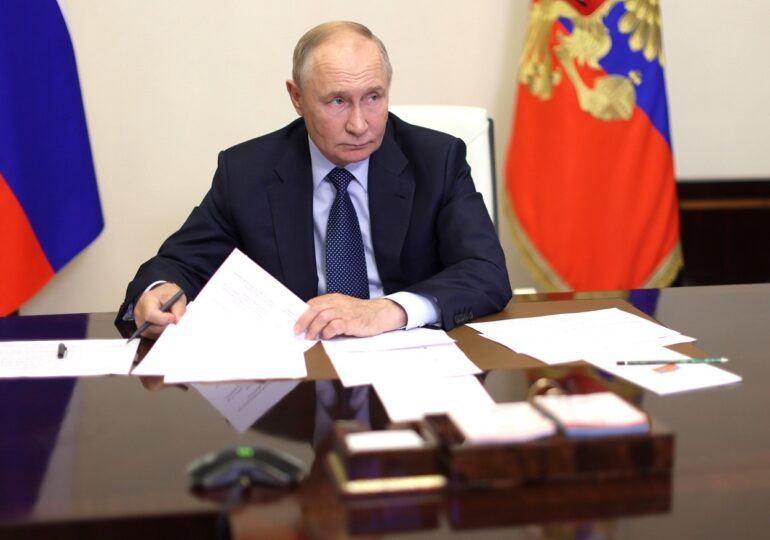Russian scientists have been tasked with developing treatments against the natural aging process. Vladimir Putin’s concern for this issue is not accidental.
The Kremlin leader is trying to combat by all means the trend of decreasing life expectancy in Russia.
In May, Putin announced that one of the objectives of his fifth presidential term was to increase life expectancy to 78 years by 2030 and to 81 years by 2036. He then announced his goal to "save 175,000 lives" by 2030, as reported by Newsweek.
According to data published in July by the Russian Federal State Statistics Service (Rosstat), the average life expectancy decreased in this country between July 2023 and June 2024, reaching 73.24 years, the level of 2017.
In this context, the research department of the Ministry of Health sent a letter to research institutes in Russia asking specialists to urgently come up with proposals to contribute to maintaining the health of Russian citizens, as announced by the publications Meduza and Sistema on Monday.
The letter obtained by the two publications asks doctors and experts to work on the development of medical products aimed at reducing cellular aging "using various methods".
Solutions are also expected for the treatment of conditions related to aging, such as sarcopenia, which results in muscle loss due to aging, senile asthenia, a generalized physical weakness related to old age, and osteoporosis, a systemic skeletal disorder.
Scientists are also asked to work on the development of "new neurotechnologies and medical products aimed, among other things, at preventing the development of cognitive and sensory disorders", as well as introducing "methods for correcting the immune system based on identifying vital indicators of aging".
Russian scientists should also work on the development of "new medical methods and technologies (including medical devices) based on biological printing technology".
Russian Deputy Prime Minister Tatiana Golikova said in May that "demographic trends in recent years pose new challenges for the healthcare system". Russia's main goal now is the development of "advanced areas of medical technology" that will increase the life expectancy of the population, she added.
A Russian expert who received the government's letter in June said he was surprised that specialists were asked to work so quickly on such a project.
"We were asked to urgently submit all research, and the letter arrived today, let's say, but everything should have been sent yesterday. To be honest, it's the first time in my life that I've dealt with something like this - usually any national project (...) is preceded by a series of meetings involving various specialists, a kind of public debate," he confessed.
A source close to the Kremlin told the American publication that the government does not have the funds for such an extensive project. "All modern research included in a national project is quite expensive - it requires a lot of money, a lot of expenses. Developing new drugs costs billions, no national project can handle that, especially now," the source said. "I don't think they will be able to quickly put together everything needed," the source added.
The federal project is supported by Mikhail Kovalchuk, a physicist and member of an elite group close to the Kremlin. "He dreams of eternal life and the 'Russian genome'," a Kremlin source said.
T.D.

